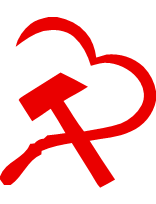Kolibri [she/her]
Death to America

- 1 Post
- 482 Comments

 3·2 days ago
3·2 days ago Maybe one day. I know I need to do something instead of just constantly feeling trapped or stuck. I just don’t have much motivation for that much anymore, but that comes and goes.
Maybe one day. I know I need to do something instead of just constantly feeling trapped or stuck. I just don’t have much motivation for that much anymore, but that comes and goes.

 3·2 days ago
3·2 days agowaterfalls grow on rocks instead

 12·2 days ago
12·2 days agojust rambling about stuff, like my dad or slight mental health stuff cw: alcoholism
I am very sleep deprived right now and feeling sick. Again. I dunno how many times I have experienced this feeling due to not sleeping much at times. Just sort of thinking about like, this moment right now. Bunch of lights on late at night that feel overbearing sometimes, in my room, the living room that illuminates the hallway to my room. Then there the noise, with the TV on loud because my dad passed out on his chair again while watching TV, where he doesn’t like to be waken up when he passed out on the couch. My nose and mouth dry, a slight headache. A general sick feeling, while a sort of feeling “out of it”. A burning feeling in my face. Then there my dog’s ashes to my desk on the right. And then me occasionally checking in on my dad to make sure he not dead due to him drinking a lot, which he isn’t. How many times have I checked on him? Too much to count at this point.
Then there just this feeling of, something very unhealthy about this environment when looking around. Nights as an escape become lesser, as day and night blur. My dad struggling in his own way with his drinking, and me struggling in another way. Drowning.
I think what I hate the most is I don’t want to experience moments like this anymore. Feeling exhausted, tired, and seeing my dad passed out again, and hardly much quiet or peace of the night. A constant rhythm that keeps on going. I would go rest right now, but I can’t. At least until I get that “sense” of nightly peace. Which only comes after my dad finally wakes up from his chair and decides to go to bed, in which also tells me still okay. Then the quiet of night comes, the loud sound of the TV goes away, the sickly overburdening artificial lights turn off and the night is mine just for a brief moment, and then I can sleep. One day this will end and it won’t be like this forever.

 5·9 days ago
5·9 days agoI heard of hexbear through lemmygrad last year. What made me stay was being able to talk about when my mom died last year or being able to vent about various stuff here. That I wasn’t able to elsewhere, last year wasn’t, really great.
It’s the most serious of combinations!
You know what they say, the best defense is a good… swiftness. You don’t need a shield if you can’t be hit! Besides, can earth do this?

Are you kidding me? Air can erode earth! Just takes… millions of years, but with that power to erode Earth itself, air is best for shield. It will erode any attack in eons!
I dunno, I think anyone not doing the wind shield combo is deeply unserious

 32·11 days ago
32·11 days agoI just wanted to mention but people forum is doing a live stream kind of related to this, but kind of wrapping up at moment of typing this, but titled “Why The Democrats Failed, How Trump Won, What Is To Be Done?” https://www.youtube.com/watch?v=vQQOJjj5O9c

 31·11 days ago
31·11 days agoHow? considering some of the names on that like Claudia De la Cruz?

 4·11 days ago
4·11 days agoventing about health stuff cw: issues related to eating
I seriously don’t know what is up lately, but today and yesterday I been having some trouble breathing. I can’t be on my feet for long. It’s not too bad, I’m fine if im sitting. If it’s not that, it like, when I go to eat or drink again, I start to feel very sick for hours that I end up not wanting to fulfill those needs much. Again, since this happen quite a bit last year/earlier this year, and it’s back again. And lately I just feel so fatigued and tired. Like yesterday, I woke up, for like an hour, only to feel like it was too much and immediately went back to sleep for like six more hours, but maybe that just stemming from all the past sleep deprivation in the past. If not that, I keep getting random pain
but I am tired of pretty much feeling awful.

 19·13 days ago
19·13 days agoI hate this country. If it not with the blame it’s other ones like I saw some takes where some are like “enjoy deportation” and like what the fuck. I would like to see those shitheads go tell that to me or my dad or grandma.
like here


 3·14 days ago
3·14 days agoThis part of a paragraph was interesting to read, especially the last sentence.
[…]Even when a man without fortune receives credit in his capacity of industrialist or merchant, it occurs with the expectation that he will function as capitalist and appropriate unpaid labour with the borrowed capital. He receives credit in his capacity of potential capitalist. The circumstance that a man without fortune but possessing energy, solidity, ability and business acumen may become a capitalist in this manner — and the commercial value of each individual is pretty accurately estimated under the capitalist mode of production — is greatly admired by apologists of the capitalist system. Although this circumstance continually brings an unwelcome number of new soldiers of fortune into the field and into competition with the already existing individual capitalists, it also reinforces the supremacy of capital itself, expands its base and enables it to recruit ever new forces for itself out of the substratum of society. In a similar way, the circumstance that the Catholic Church in the Middle Ages formed its hierarchy out of the best brains in the land, regardless of their estate, birth or fortune, was one of the principal means of consolidating ecclesiastical rule and suppressing the laity. The more a ruling class is able to assimilate the foremost minds of a ruled class, the more stable and dangerous becomes its rule.

 4·16 days ago
4·16 days agoChapter 13 answer that I think? If I remember and understood Marx right, but one of the things that affects the rate of profit is average organic composition of capital, mainly constant capital to variable capital, of a total capital. A thing to keep in mind is Marx refers to the total social capital, or capital as a whole. But anyways if there more constant to variable, profit starts to fall, and then capitalists need more variable capital/workers/or other ways of exploiting labor power, to keep the same rate of profit or to increase it. Since surplus value is factored into the rate of profit. Since rate of profit is surplus value over the total capital. Or as Marx puts it
The proportion of this surplus to the total capital is therefore expressed by the fraction s/C, in which C stands for total capital. We thus obtain the rate of profit s/C=s/(c+v), as distinct from the rate of surplus-value s/v.
But you get a lot of dynamics going on like the more developed capitalism is in a country is, the lesser the rate of profit I think due to more constant capital? but in countries where capitalism is less developed, the higher the rate of profit, due to more variable capital.
Also with the your original question of profit and surplus value, if it helps more, there this from chapter 2 from vol 3
spoiler tagging since I don't want quotes to take up the whole page
If, as Hegel would put it, the surplus therefore re-reflects itself in itself out of the rate of profit, or, put differently, the surplus is more closely characterised by the rate of profit, it appears as a surplus produced by capital above its own value over a year, or in a given period of circulation.
Although the rate of profit thus differs numerically from the rate of surplus-value, while surplus-value and profit are actually the same thing and numerically equal, profit is nevertheless a converted form of surplus-value, a form in which its origin and the secret of its existence are obscured and extinguished. In effect, profit is the form in which surplus-value presents itself to the view, and must initially be stripped by analysis to disclose the latter. In surplus-value, the relation between capital and labour is laid bare; in the relation of capital to profit, i.e., of capital to surplus-value that appears on the one hand as an excess over the cost-price of commodities realised in the process of circulation and, on the other, as a surplus more closely determined by its relation to the total capital, the capital appears as a relation to itself, a relation in which it, as the original sum of value, is distinguished from a new value which it generated. One is conscious that capital generates this new value by its movement in the processes of production and circulation. But the way in which this occurs is cloaked in mystery and appears to originate from hidden qualities inherent in capital itself.
Also to just Just to quote some parts from vol 3, mainly chapter 13 that might also help?
spoiler
[…]This mode of production produces a progressive relative decrease of the variable capital as compared to the constant capital, and consequently a continuously rising organic composition of the total capital. The immediate result of this is that the rate of surplus-value, at the same, or even a rising, degree of labour exploitation, is represented by a continually falling general rate of profit. (We shall see later [Present edition: Ch. XIV. — Ed.] why this fall does not manifest itself in an absolute form, but rather as a tendency toward a progressive fall.) The progressive tendency of the general rate of profit to fall is, therefore, just an expression peculiar to the capitalist mode of production of the progressive development of the social productivity of labour. This does not mean to say that the rate of profit may not fall temporarily for other reasons. But proceeding from the nature of the capitalist mode of production, it is thereby proved logical necessity that in its development the general average rate of surplus-value must express itself in a falling general rate of profit. Since the mass of the employed living labour is continually on the decline as compared to the mass of materialised labour set in motion by it, i.e., to the productively consumed means of production, it follows that the portion of living labour, unpaid and congealed in surplus-value, must also be continually on the decrease compared to the amount of value represented by the invested total capital. Since the ratio of the mass of surplus-value to the value of the invested total capital forms the rate of profit, this rate must constantly fall.
Even if the exploited mass of the working population were to remain constant, and only the length and intensity of the working-day were to increase, the mass of the invested capital would have to increase, since it would have to be greater in order to employ the same mass of labour under the old conditions of exploitation after the composition of capital changes.
Since the development of the productiveness and the correspondingly higher composition of capital sets in motion an ever-increasing quantity of means of production through a constantly decreasing quantity of labour, every aliquot part of the total product, i.e., every single commodity, or each particular lot of commodities in the total mass of products, absorbs less living labour, and also contains less materialised labour, both in the depreciation of the fixed capital applied and in the raw and auxiliary materials consumed. Hence every single commodity contains a smaller sum of labour materialised in means of production and of labour newly added during production. This causes the price of the individual commodity to fall. But the mass of profits contained in the individual commodities may nevertheless increase if the rate of the absolute or relative surplus-value grows. The commodity contains less newly added labour, but its unpaid portion grows in relation to its paid portion. However, this is the case only within certain limits. With the absolute amount of living labour newly incorporated in individual commodities decreasing enormously as production develops, the absolute mass of unpaid labour contained in them will likewise decrease, however much it may have grown as compared to the paid portion. The mass of profit on each individual commodity will shrink considerably with the development of the productiveness of labour, in spite of a growth in the rate of surplus-value. And this reduction, just as the fall in the rate of profit, is only delayed by the cheapening of the elements of constant capital and by the other circumstances set forth in the first part of this book, which increase the rate of profit at a given, or even falling, rate of surplus-value.
To add Marx also goes into counteracting the tendency of the rate of profit to fall here in chapter 14 one of them increasing the exploitation of labor. If you check out those chapters and I think chapter 15 to, Marx has examples in them, but in chapter 13 and 14 he tries to give examples.

 14·16 days ago
14·16 days agoMarx talks more about profit and surplus value in Vol 3, but to cite a part from chapter 1, vol 3
In its assumed capacity of offspring of the aggregate advanced capital, surplus-value takes the converted form of profit. Hence, a certain value is capital when it is invested with a view to producing profit [4], or, there is profit because a certain value was employed as capital. Suppose profit is p. Then the formula C = c + v + s = k + s turns into the formula C = k + p, or the value of a commodity = cost-price + profit.
The profit, such as it is represented here, is thus the same as surplus-value, only in a mystified form that is nonetheless a necessary outgrowth of the capitalist mode of production. The genesis of the mutation of values that occurs in the course of the production process, must be transferred from the variable portion of the capital to the total capital, because there is no apparent distinction between constant and variable capital in the assumed formation of the cost-price. Because at one pole the price of labour-power assumes the transmuted form of wages, surplus-value appears at the opposite pole in the transmuted form of profit.
However, at the same time, it is a little more complicated? profit is not exactly the same as surplus value since in part one and part two of Vol 3, Marx goes into this more. ProleWiki also has something on this to https://en.prolewiki.org/wiki/Surplus-value#Profit_is_not_surplus-value.
but you also have the rate of profit with the rate of surplus value that does weird things. Where the rate of profit can fall, but the rate of surplus value can remain the same, along with the general rate of profit affecting things as a whole.
But from chapter 3 of vol 3
Here, as at the close of the preceding chapter, and generally in this entire first part, we presume the amount of profit falling to a given capital to be equal to the total amount of surplus-value produced by means of this capital during a certain period of circulation. We thus leave aside for the present the fact that, on the one hand, this surplus-value may be broken up into various sub-forms, such as interest on capital, ground-rent, taxes, etc., and that, on the other, it is not, as a rule, identical with profit as appropriated by virtue of a general rate of profit, which will be discussed in the second part.



deleted by creator